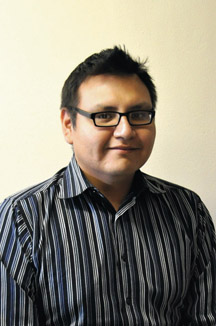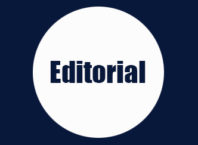 Covering the news in Minnesota’s Native community is proving an interesting experience, as with any topic in Indian Country, there are universal elements of sovereignty as well as elements of guarded interactions. We’re tribal people, we take time to warm up to new people or concepts. Overall, it’s been encouraging.
Covering the news in Minnesota’s Native community is proving an interesting experience, as with any topic in Indian Country, there are universal elements of sovereignty as well as elements of guarded interactions. We’re tribal people, we take time to warm up to new people or concepts. Overall, it’s been encouraging.
As the past editor of a tribal publication on the Rosebud Sioux reservation, I’ve seen the best and worst in people and institutions. In the case of the latter, I’ve witness and experienced the crab-in-the-bucket mentality. Whether that’s hiring and firing practices, funding allocations or battles of wills, there are times we simply fail to be the best that we can be.
There are countless articles, opinions and papers
written about why we tend to fail each other by bringing each other
down. Activists will say it’s because we’ve allowed ourselves to be
colonized; sociologists and psychiatrists would say it’s because of
inter-generational trauma and a survivalist mentality; and tribal
politicians will say it’s because of federal ignorance of treaty
obligations. There are countless reasons to explain away the negativity.
As
a tribal citizen raised on the reservation, what I look for are reasons
to uplift each other. So far, the only worthwhile answer I’ve found is:
we’re all we’ve got.
In politics, the
federal government continues to ignore its treaty obligations to our
people. In mainstream society, our issues are treated as racial issues,
rather than political ones. In media, our concerns are swept into a
corner, only visited upon for opinion by unqualified commentators about
how poverty-stricken, entitled or noble we are, and boxing us into neat
packages for mass consumption.
So
again, it falls to us to tell our own story. In this issue, we had a
conversation with a recent Twin Cities graduate of the GED program who
could have been a stereotype of a high school drop out. He chose not to
be, he acknowledged his challenges and took it upon himself to improve
his situations. He had encouragement from his friends and family during
his journey to earn his education, and is now enrolling in an institute
of higher learning. And we must tell this story, to encourage those who
do not have the support to uplift themselves.
Regionally,
six of South Dakota’s tribal nations are banding together to organize a
tribal power authority to utilize the power of the state’s wind as a
means to address access to basic energy needs. The Cheyenne River, Crow
Creek, Oglala, Rosebud, Yankton Sioux Tribes and the Sisseton-Wahpeton
Oyate are uniting to create the Oceti Sakowin Power Authority. The
consortium is backed by the Clinton Global Initiative – former President
Bill Clinton’s effort to solve world problems – as well as Rockefeller
Philanthropy Advisors and lawfirm Arent Fox. The endgame for the tribes
is to develop wind farms on the reservations to sell power nationally
and more importantly, provide affordable energy to its tribal citizens.
Recently,
The Circle’s new general manager, Al Paulson, and I took a brief trip
to Grand Portage and Fond du Lac to introduce ourselves to members of
the tribal governments, higher education officials, and tribal citizens
to connect to our readership on the reservations. We learned about the
contention between one of the bands and the state when it comes to
sovereign hunting rights and cultural preservation. We heard about one
band’s legal battle with a municipal authority to defend its gaming
rights.
We are also reviving a section
in The Circle committed to our youth. Brianna Skildum (Fort William
First Nation, Canada), an Ojibwe high school sophomore enrolled at
Roosevelt High in Minneapolis, is now contributing as part of our
dedication to including our youth in our conversations. We are
encouraged to see such a perspective in our publication and hope she
will be the first of many youth to join the conversation.
It
is encouraging to know the spirit of resistance, tribal ascendancy and
articulation is alive here in Minnesota and in the Dakotas. Those are
the stories that need to be told.
We
are not blind to the struggles of our people across the country. As one
of the country’s oldest, independent newspapers, it’s incumbent upon us
to show every angle of the Native American experience as it happens. As
always, we invite you to share your perspectives, news, opinions and
insights to broaden the conversation.






